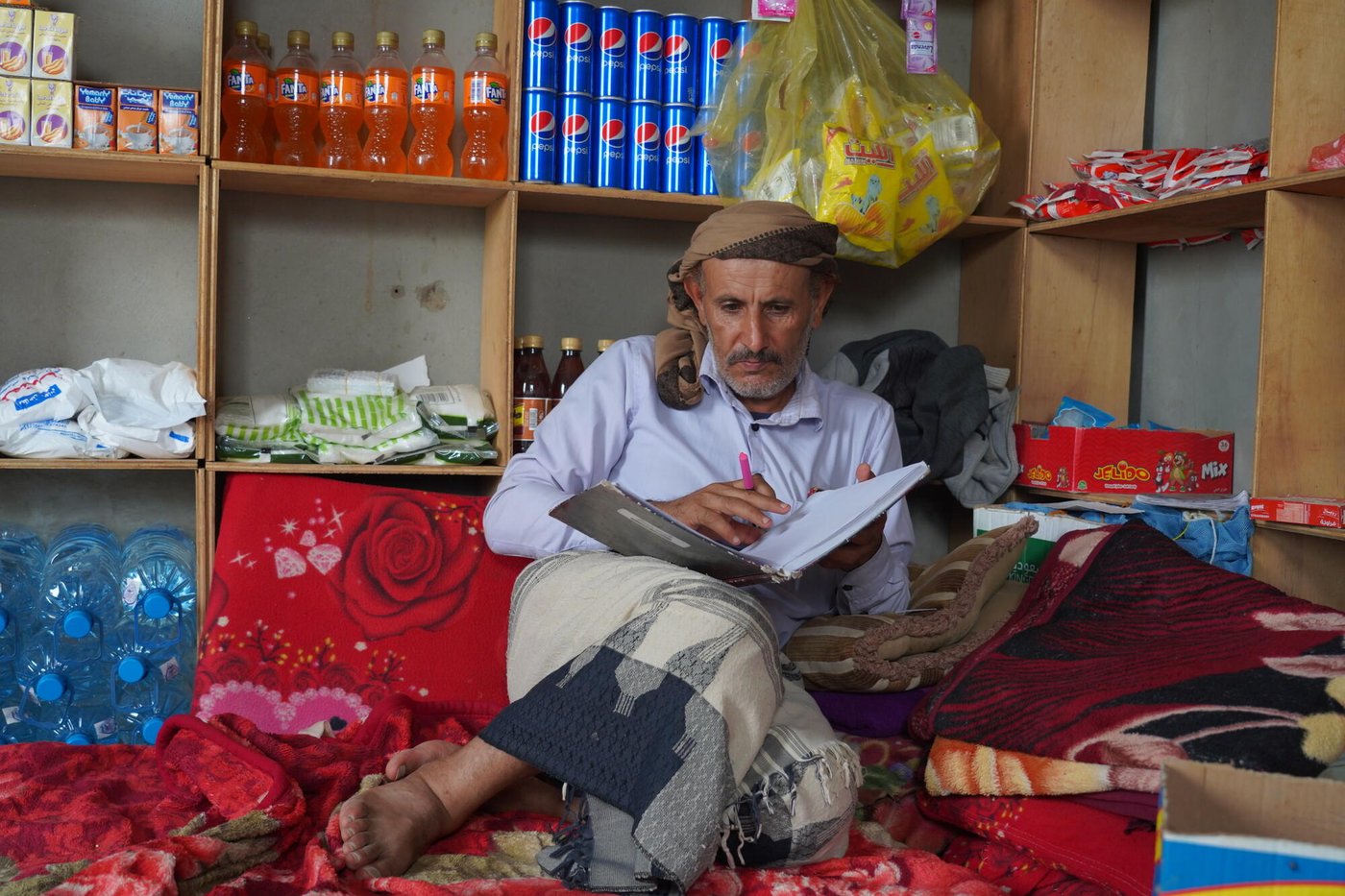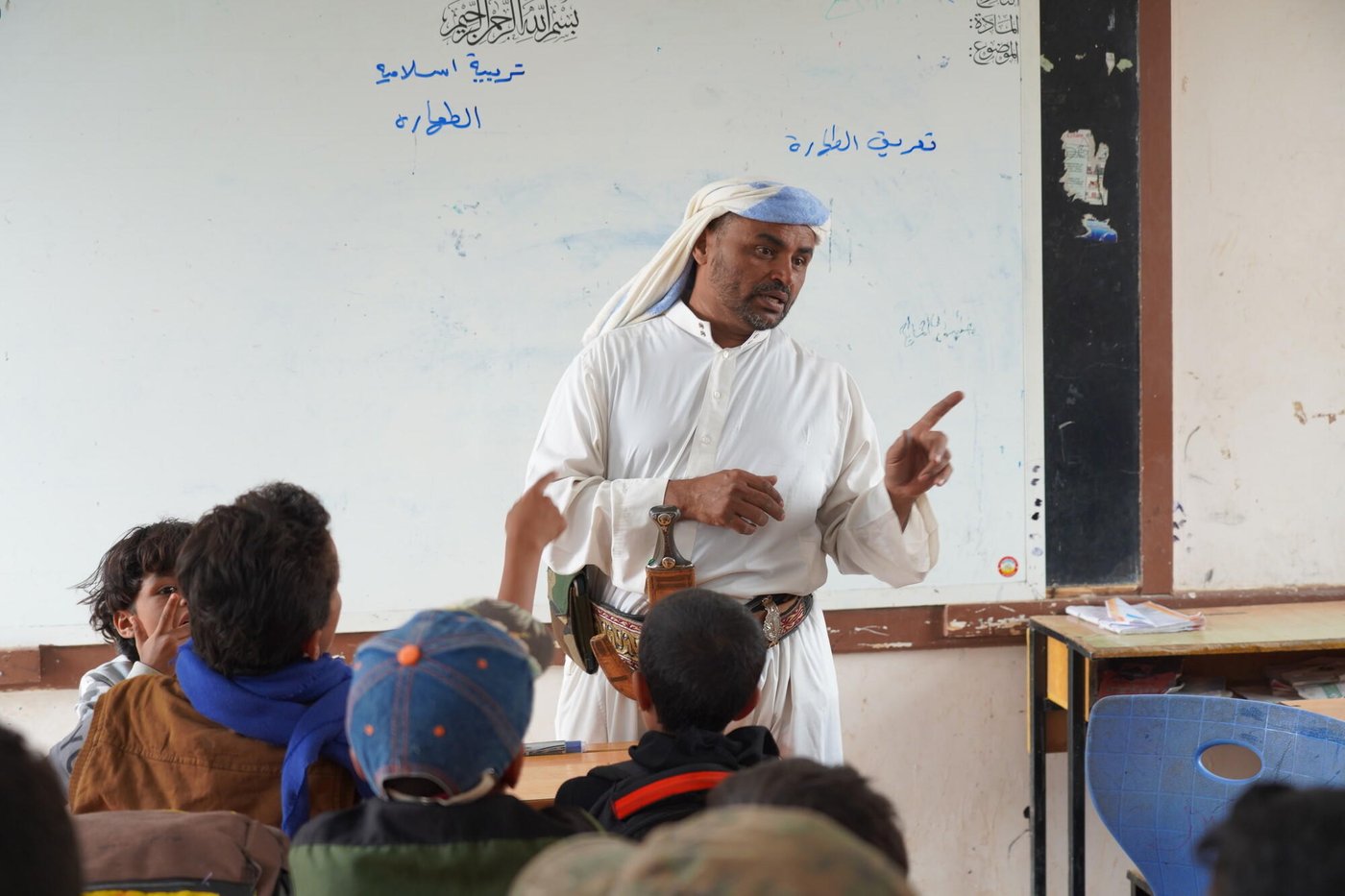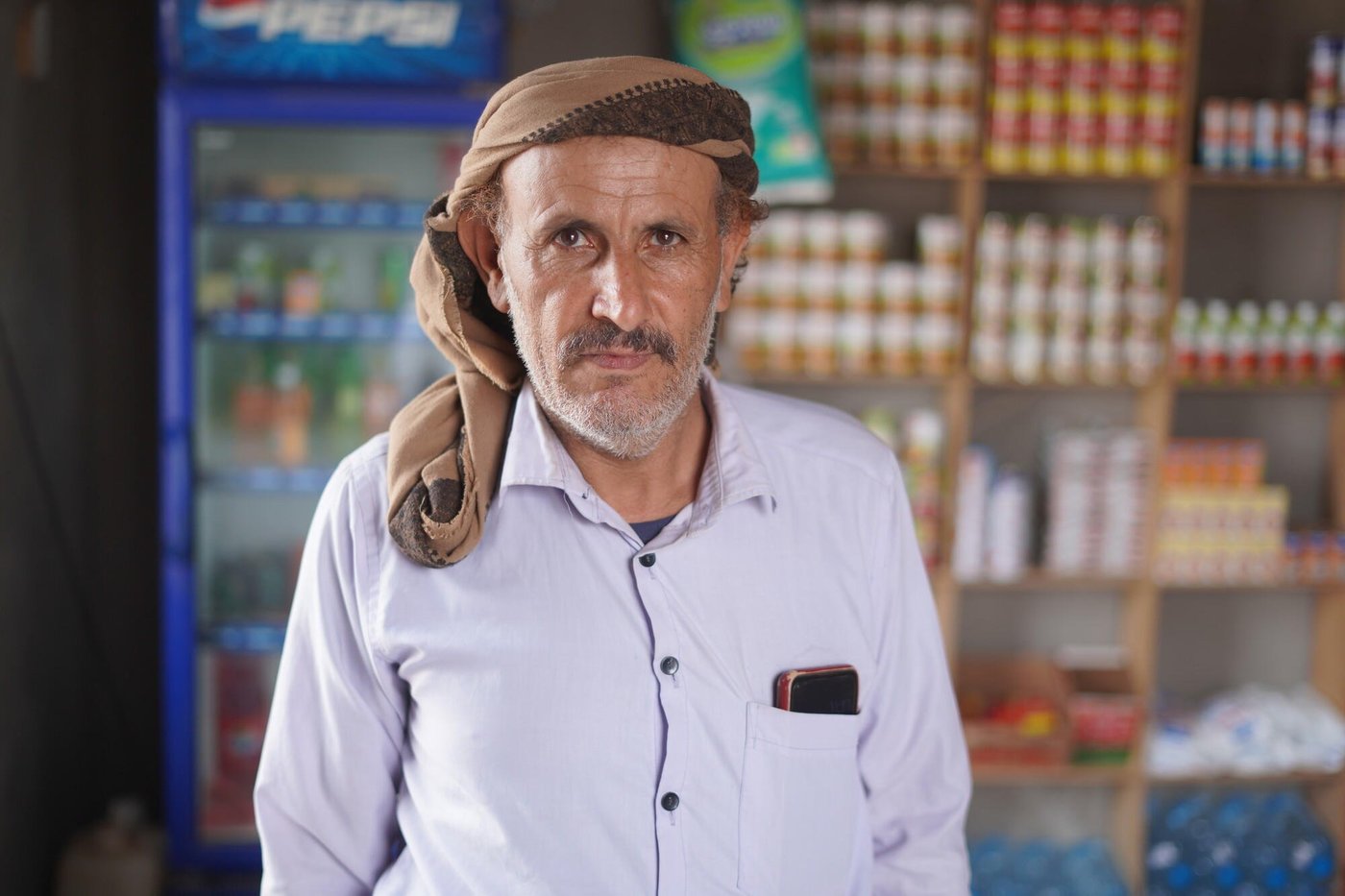Mutahar Al-Hindawan, 55, has been teaching for 30 years. He chose this profession because he believes education can improve literacy and help the next generation of Yemeni students find better jobs.
"Educated people used to have more chances of getting work, and many of my students graduated and found good jobs. That was in the good days, when teachers used to receive a salary that was enough for them to provide for their families and also save," Mutahar says.
Mutahar used to receive a monthly salary equivalent to USD 440. But because of the currency collapse in Yemen, his salary is now around USD 62. This is not enough for him to pay for breakfast and transport for his own children to get to school.
A difficult decision
"Some organisations, like the Norwegian Refugee Council (NRC), have intervened and helped us with $50 as a monthly cash incentive, but that is not enough and does not enable me to provide for my ten family members," says Mutahar.
Mutahar had no choice but to look for another job that paid more. It was a very difficult decision for a seasoned teacher who considers the classroom to be his second home.
"Luckily, I found a job in a small shop, and I receive three times what I received from teaching. Teaching is more interesting for me, but I can't teach if my own children don’t have the basics.”

Only a third of teachers are paid
According to UNICEF, only a third of teachers in Yemen receive salaries. Over 170,000 teachers have not received a regular salary since 2016.
The quality of education in public schools has suffered as a result. Some Yemenis who can afford it have been sending their children to private schools, as the education there is better.
Sa'ad Al-Muhr, the principal of Al-Rawdha School in Marib governorate, confirms that nine teachers, including Mutahar, have left the school to look for other jobs.
"Some teachers choose to join the battles rather than teach, as they can receive a better income from fighting," Sa'ad says.
"We tried to bring these teachers back to school, but they said they had families to provide for and could not continue with such low pay."

The quality of education is declining
Sa'ad explains that the impact is not only on the lives of the teachers themselves, but also on the students. The quality of education is declining, as students are not able to study all the subjects they need to study.
"We try to attract new teachers who have just graduated, but they are not of the same quality as the older teachers,” he says. “Moreover, we cannot find teachers at all for some subjects."
Former teacher Mutahar echoes Sa’ad’s view: "Education was better before the conflict, as teachers used to receive good salaries and children received a better education. But now, teachers are too worried about how to survive."
***
Sign up to our newsletter to read more stories from around the world


